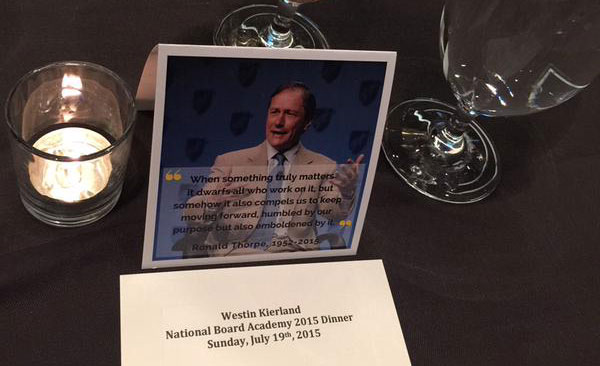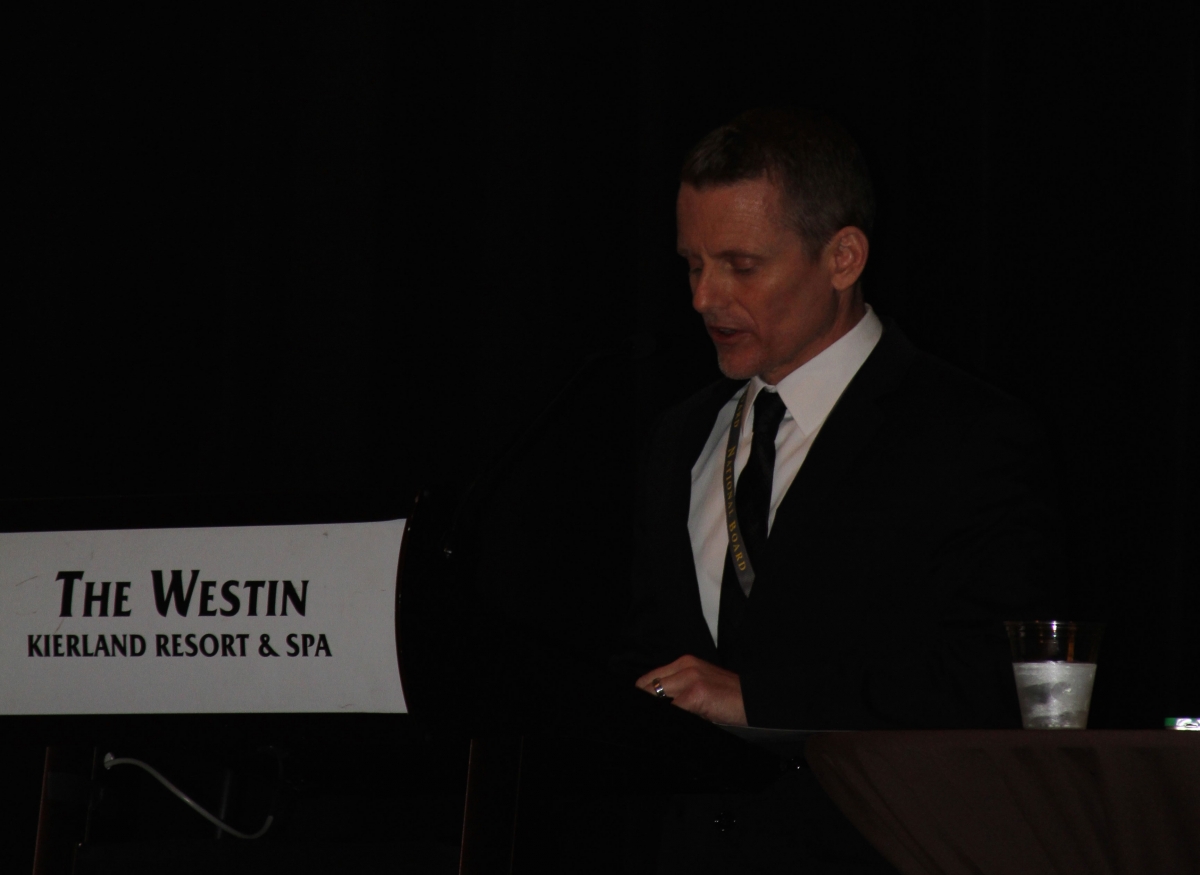Visionary. Advocate. Transformative Leader.
These words were on the screen Tuesday morning at the National Board Academy in Scottsdale, AZ, as Dr. Mike Lee asked us to consider the small steps, the decisions of individual teachers at their schools, that are necessary to transform our professional culture broadly. These particular words were widely used by people describing National Board President and CEO Ron Thorpe in the wake of his passing on July 1. For the teachers and education leaders attending this meeting, the challenge is to take on a some of those same qualities, to advance the goals Thorpe articulated so well.

Thorpe communicated a vision of teachers seizing control of our profession, but what does it mean to act on those ideas, Lee asked. In his role at the National Board, Lee focuses on the broadest levels of education policy, but as a former teacher and principal, he’s well aware that it can take a long time for policy changes to reach classroom, if they do at all. Some policies are at odds with each other, or at odds with our mission. So for the individual teacher leader, what does it mean to seize the profession? How do we do it, and convince others to do join in the effort?
Lee is fascinated by school cultures, their power to adopt or subvert initiatives. Invoking a maxim widely attributed to Peter Drucker – "culture eats strategy for breakfast" – Lee argued that National Board Certified Teachers must communicate the "why" of certification more consistently. Strategy is not enough if we neglect to envision and spread a culture of certification at the "granular level" of individual schools.
It is easy, and unfortunately common, for many outstanding teachers to avoid the spotlight, retreat from high profile leadership opportunities where they exist, and focus on their own classroom. The reason, Lee argues, is that these teachers are always up to the challenges of working with students; it’s the potential or actual breakdown of teams, of professional relationships, that discourages many master teachers from seeking leadership opportunities (or even pushes some out of teaching).

Is certification a cure for dysfunction in organizational cultures? Lee doesn’t go that far, but notes that master teachers who pursue and achieve certification are acting in a way that can shift culture, communicating through their actions that embracing higher standards is important, that excellence matters.
"Imagine an environment where the baseline of practice is represented by National Board Certification," Lee proposed. Other professions have made that a reality. While organizations and policy makers can shape strategies to bring about that vision, the cultures shaped by individual teachers will ultimately determine if the strategy ends up working – or ends up as breakfast.
